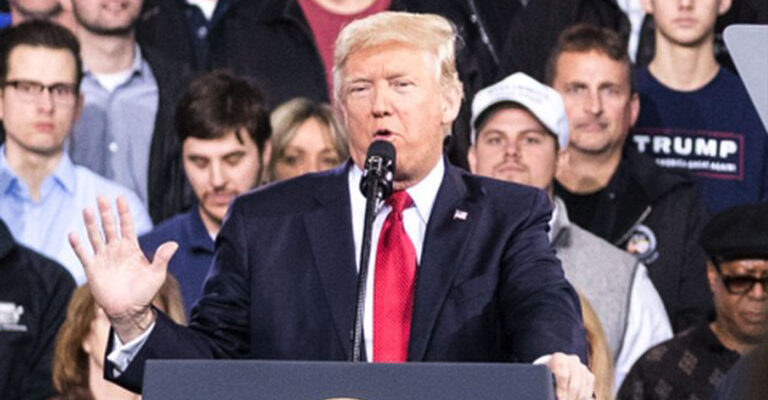By Stacy M. Brown
Black Press USA Senior National Correspondent
There was a time, not long ago, when the now-devout loyalists of Donald Trump spoke of him as a national menace. Before they kissed his ring, they recoiled at the mere idea of his power. Before they called him “sir,” they called him something else entirely. The irony of their transformation tells the story of a Republican Party stripped of its dignity, one man at a time.
Vice President J.D. Vance once wondered aloud if Trump might be “America’s Hitler.” In a message to a former Yale classmate, Vance wrote that he went “back and forth between thinking Trump is a cynical asshole like Nixon who wouldn’t be that bad—or that he’s America’s Hitler.” It was a reflection of genuine alarm from a man who now sits comfortably in Trump’s circle, repeating his lines as if he never uttered the warning.
Pete Hegseth, once dismissive and sharp-tongued, called Trump “an armchair tough guy,” scoffing at his tough talk and lack of substance. “It’s typical Trump: all bluster, very little substance,” he said during a 2016 Fox News segment unearthed by CNN. “He talks a tough game, but when pressed on it, he’s an armchair tough guy.” Today, Hegseth is Trump’s Secretary of the Department of Defense, part of a growing roster of men once critical, now compliant.
Then there was Marco Rubio, the senator from Florida, who called Trump “a con man.” During the 2016 Republican primary, Rubio mocked Trump’s fraudulent business history and derided his temperament. “Donald Trump is a con artist,” Rubio declared on the campaign trail. Yet now, the same man who mocked Trump’s “tiny hands” is his Secretary of State, praising him as a “transformational leader.”
Tulsi Gabbard once called Trump “Saudi Arabia’s bitch,” blasting his defense of the Saudi royal family after the murder of journalist Jamal Khashoggi. “Being Saudi Arabia’s bitch is not ‘America First,’” she tweeted in 2018. Now, Gabbard smiles from the other side of the table as the U.S. Director of National Intelligence, a willing participant in the same orbit she once condemned.
Robert F. Kennedy Jr., who labeled Trump “a terrible human being” and “probably a sociopath,” has since found himself in the Trump administration as Secretary of Health and Human Services. The same man who once accused Trump of cruelty now helps carry out his agenda, one that includes dismantling scientific research and cutting funding for autism and cancer studies.
Elise Stefanik, who once brushed Trump off as “a whack job,” has become one of his loudest defenders in Congress. The congresswoman from New York now speaks of Trump with the reverence of a disciple, rewriting her own history as though her earlier disgust never existed. Her rise through party ranks came not through courage, but through submission.
Earlier this year, The New Yorker captured the culture of sycophancy that now defines Trump’s Washington. During one of the longest televised Cabinet meetings in history, Trump’s aides competed for praise time, hailing him as a revolutionary figure, even comparing him to Abraham Lincoln and the founding fathers. One official called Trump “the transformational President of the American worker.” Another gushed that “this is the third revolution—Donald Trump leading the way.” The Cabinet clapped, smiling as though hypnotized.
This is what Trump demands: adoration, not governance. “I’m the President of the United States,” he told his subordinates that day. “If I think our country is in danger, and it is, I can do whatever I want.” The line hung in the air like a confession and a prophecy all at once.
The Conversation observed that sycophancy isn’t just a symptom of Trumpism—it’s his governing philosophy. “He surrounds himself with loyalists who raise themselves at the expense of others,” the analysis noted. “In such an environment, freedom of thought dies first.” That death of dissent has spread far beyond the Oval Office. It has consumed an entire party, leaving behind only those willing to kneel.
What’s left of the Republican conscience is buried under applause lines and fear. The men and women who once warned that Trump was dangerous now build his pedestal. The same voices that once called him unstable now call him indispensable.
And so, Americans watch the parade of submission continue—Rubio, Vance, Hegseth, Kennedy, Gabbard, Stefanik—each of them living proof that power, not principle, is the true currency of this new era.
The question now reverberates not just through Washington but across the country:
Is there a single Republican that people can trust?







